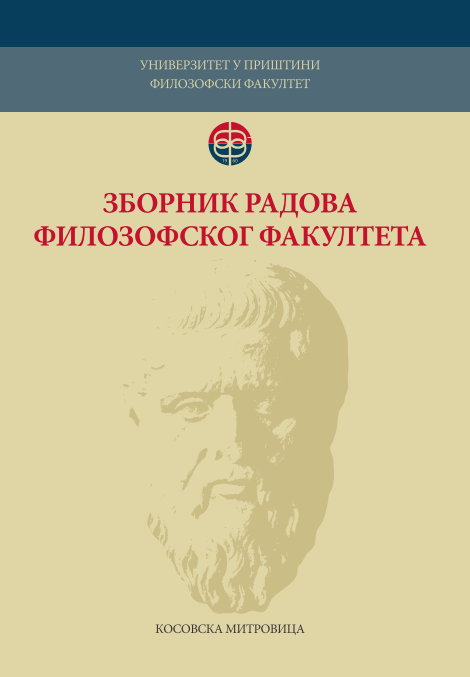Семантички статус футура I – временска или модална категорија
Semantic status of future tense in Serbian: Temporal or modal category
Author(s): Aleksandra RadovanovićSubject(s): Language studies, Language and Literature Studies, South Slavic Languages
Published by: Филозофски факултет, Универзитет у Приштини
Keywords: future; tense; modus; modality
Summary/Abstract: The complex cognitive and ontological status of future events being the basis of the epistemological difference between the future on one and the past and present time on the other side is often pointed out in linguistic studies. This difference is reflected in the future tense semantics. The presence of modal and temporal values raised the issue of the status of the future tense as a formal grammatical category in the linguistic theory, primarily in anglistics. This paper examines whether the future tense in Serbian, future I, expresses a double semantic character and whether there are grounds for questioning its categorization. In this regard, the paper begins with a review of the theoretical assumptions underlying the prevailing view on tense and modality. In our linguistic theory and grammar, the tense meanings and functions are primarily described and analysed based on three basic concepts (indicative, relative and modus) aiming, in essence, to differentiate temporal from modal uses and meanings. In the description of the future I, the same concepts feature. However, as shown in the paper, it cannot be argued that the consideration on such basis leads to a clear distinction between the indicative and modal future. Furthermore, it is shown that there are certain notable discrepancies between theoretical assumptions and definitions of the primary functions of this tense. If the conformity between the semantic categories and the grammatical verbal forms used to express them is to be achieved, then future I should rather be regarded within the category of mood. Semantic analysis that takes the notion of factuality into account would suggest the same. In some instances of its use, future I can express volitive modal meaning as dominant. Although the paper indicates the possibility to regard the verbal system in Serbian as a binary system with the expressed past - non-past opposition, it does not tend to offer a new categorization, but rather to highlight the complexity of the future I semantics closely related to the forms of its appearance. In this respect, the double nature of the future I on the semantic and morphosyntactic levels, which makes it a unique member of the verbal system in Serbian, has been emphasised.
Journal: Зборник радова Филозофског факултета у Приштини
- Issue Year: 47/2017
- Issue No: 1
- Page Range: 235-254
- Page Count: 20
- Language: Serbian

